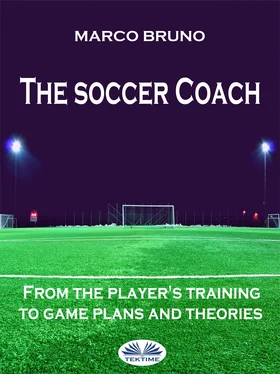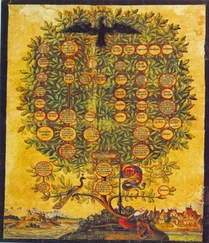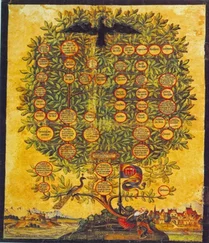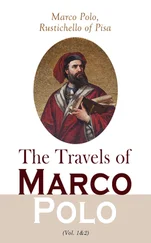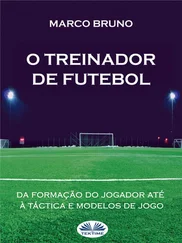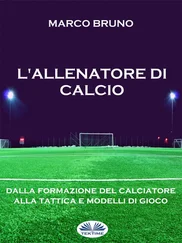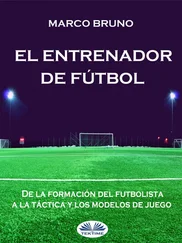Marco Bruno - The Soccer Coach
Здесь есть возможность читать онлайн «Marco Bruno - The Soccer Coach» — ознакомительный отрывок электронной книги совершенно бесплатно, а после прочтения отрывка купить полную версию. В некоторых случаях можно слушать аудио, скачать через торрент в формате fb2 и присутствует краткое содержание. ISBN: , Жанр: unrecognised, на английском языке. Описание произведения, (предисловие) а так же отзывы посетителей доступны на портале библиотеки ЛибКат.
- Название:The Soccer Coach
- Автор:
- Жанр:
- Год:неизвестен
- ISBN:978-8-87-304550-2
- Рейтинг книги:5 / 5. Голосов: 1
-
Избранное:Добавить в избранное
- Отзывы:
-
Ваша оценка:
- 100
- 1
- 2
- 3
- 4
- 5
The Soccer Coach: краткое содержание, описание и аннотация
Предлагаем к чтению аннотацию, описание, краткое содержание или предисловие (зависит от того, что написал сам автор книги «The Soccer Coach»). Если вы не нашли необходимую информацию о книге — напишите в комментариях, мы постараемся отыскать её.
The Soccer Coach — читать онлайн ознакомительный отрывок
Ниже представлен текст книги, разбитый по страницам. Система сохранения места последней прочитанной страницы, позволяет с удобством читать онлайн бесплатно книгу «The Soccer Coach», без необходимости каждый раз заново искать на чём Вы остановились. Поставьте закладку, и сможете в любой момент перейти на страницу, на которой закончили чтение.
Интервал:
Закладка:
Marco Bruno
THE SOCCER COACH
From the player’s training
to game plans and theories
The sense of pleasure in wearing the cleats, the smell of freshly cut grass early in the season; the plastic bags at feet to not get in the water during workouts in the pouring rain. Friends not only for one season, but lasting forever. Growing up with a dream and not being able to accomplish it completely and then realizing that the reason was because your vocation was to train. Little ones and big ones. With an unexpected naturalness. Probably the talent I lacked as a player I had as a coach. Or maybe not even here I can say I have it... the way to get what you want is often incredibly winding and you might even get lost in it. Cleats or whistle... the passion is the same. And if passion drives you, you can never get lost.
Table of contents
What is soccer? 4 What is soccer? Soccer is a simple and easily understandable game in its rules and in its course. Anyone can practice it because it does not require a particular physical structure or certain athletic skills; the athlete has a wide freedom of movement and therefore the possibility to express the best of him. For this, the game of soccer is called free activity that, starting from a common basic technique, allows everyone to express their own personality and their own style; however, it is an uncertain activity, linked to the law of the case, and which is impossible to foresee. Philosophically soccer is an ever-new and full-fledged adventure that can become spectacular; it is an activity of the present because the player builds his future during each game, the past does not matter.
TRAINING STANDARDS 7
TRAINING AND GROWTH 24
TRAINING OF YOUNG PLAYERS 31
COACH RESPONSIBILITIES 36
PHYSIOLOGICAL EFFECTS OF TRAINING 45
SOURCES FOR ENERGY PRODUCTION 56
MOTOR SKILLS 65
COORDINATIVE SKILLS 66
CONDITIONAL SKILLS 71
RESISTANCE 73
SPEED 113
FLEXIBILITY 130
THE MASS IN ACTION 144
TRAINING PROGRAMMING 147
THE COACH 156
TEACHING PROGRESSION IN THE YOUTH SECTOR 162
TECHNIQUE 164
TACTICS 170
TRAINING METHODS 178
GAME SYSTEMS 185
BALL POSSESSION 202
HOW TO PREPARE A TRAINING 210
THE MANAGEMENT OF WHO DOES NOT PLAY 216
What is soccer?
Soccer is a simple and easily understandable game in its rules and in its course. Anyone can practice it because it does not require a particular physical structure or certain athletic skills; the athlete has a wide freedom of movement and therefore the possibility to express the best of him.
For this, the game of soccer is called free activity that, starting from a common basic technique, allows everyone to express their own personality and their own style; however, it is an uncertain activity, linked to the law of the case, and which is impossible to foresee.
Philosophically soccer is an ever-new and full-fledged adventure that can become spectacular; it is an activity of the present because the player builds his future during each game, the past does not matter.
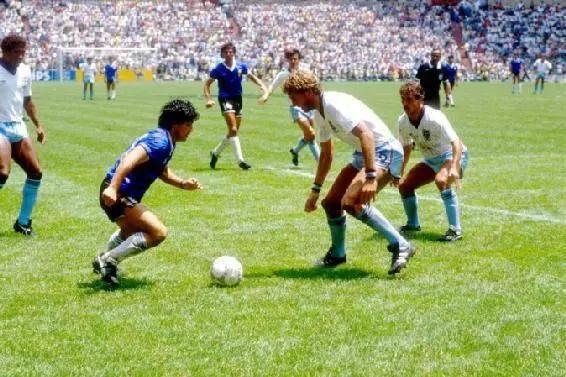
People like soccer
Because it’s a simple game
Everyone can play it
It’s a free activity
It’s an uncertain activity
It's an adventure
It’s an activity of the present
I think there are key factors to work on in order to train one player in all his characteristics: technical, tactical, physical, mental and social. Obviously, we must make it clear straight away that training a young soccer player is completely different from training an adult one. For this reason I prefer to talk about the young soccer player’s formation before, and about the adult player’s training then.
In recent years, I’ve seen (and I still do) youth training coaches often making the same mistake: to train youths and kids as if they were adults.
TRAINING STANDARDS
When assuming responsibility for team leadership, each coach must have a clear understanding of the meaning of the word "training”. In an extremely general way, training is a process that produces a physical, motor, cognitive and affective change.
The athlete's sport training is:
- physical training,
- technical-tactical training,
- intellectual, psychic and moral training.
All this is accomplished through physical exercises. We can therefore define the training as “the combination of all the actions aimed at improving the modifiable factors that affect the performance to get the best efficiency."
The factors on which action can be taken are many, we can mention:
- training of physical abilities;
- training of technical abilities;
- training of tactical abilities;
- training of psychic abilities.
It is not possible to intervene on one of them without affecting positively or negatively the others.
If training stimuli are varied and directed at all abilities, the body is confused and does not know what response to such stresses. In training, combining multiple capacities does not cause a sum of adaptations, but instead it causes a subtraction of adaptations. Therefore, the coach does not have to train all the time, because otherwise he will be training bad, little or nothing. Physical exercise physiologists have always been interested in the adaptations of our body to the chronic exposure to physical exercise (training) and in particular:
to the principle of subjectivity, under which the training program should be established taking into account possible variations from subject to subject. Different people respond differently to the same training program.
to the principle of specificity, under which the training should reflect perfectly the type of motor activity that is taking place, in order to optimize its benefits. A weightlifter cannot train with the prolonged run.
to the principle of reversibility, under which the benefits of training are lost when the workout is stopped or decreased. For long breaks it is advisable to always suggest maintenance activities.
to the principle of the sequential overload, under which you need to stimulate the body (muscles, cardiovascular system) with ever increasing loads as the body fits.
to the principle of “hard / easy”, under which intense "hard" training sessions (load or augmentation) should be followed by an "easy" (unload or assimilation) exercise period to allow the body to recover and adapt before tackling the next increase.
to the principle of rescheduling, seen as megacycle, macrocycle, mesocycle and microcicle programming, within which intensity and volume of loads and training types will be varied for continuous search of better physical fitness conditions.
Many athletes are over trained, and when their performance worsens because of overtraining, coaches train them more because it is believed that the more you train the more it improves. (J.H Wilmore–D. L. Costill, 2005).
The more complete and finalized are the interventions on the parts composing the training, the more effective and precise will it be. In soccer game, unfortunately, there are still cases where the training is limited to "a few laps around the field, scrimmages and some goal shootings”. There is nothing that can replace the practice. All theories are abstract if they fail to illuminate the concepts formed in practical experience. The complexity of soccer requires precise, qualified and studied interventions.
The most difficult problem to face is to determine the type, quality and intensity of the work to be offered to the players and to check their degree of fit for training loads (TRAINABILITY).
Читать дальшеИнтервал:
Закладка:
Похожие книги на «The Soccer Coach»
Представляем Вашему вниманию похожие книги на «The Soccer Coach» списком для выбора. Мы отобрали схожую по названию и смыслу литературу в надежде предоставить читателям больше вариантов отыскать новые, интересные, ещё непрочитанные произведения.
Обсуждение, отзывы о книге «The Soccer Coach» и просто собственные мнения читателей. Оставьте ваши комментарии, напишите, что Вы думаете о произведении, его смысле или главных героях. Укажите что конкретно понравилось, а что нет, и почему Вы так считаете.
